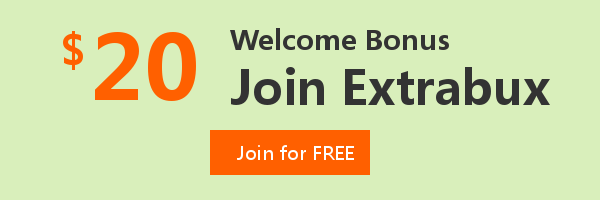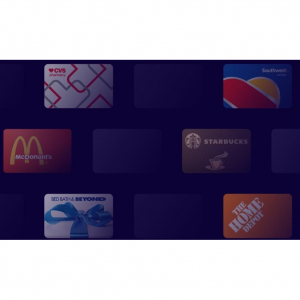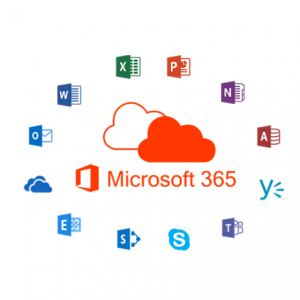
CyberGhost vs. Private Internet Access vs. IPVanish: Speed, Security, Servers & Price Compared 2025
Which VPN is more worthwhile?1. What is the best value-for-money VPN in 2025?
VPN has attracted more and more people's attention. There are three VPNs that are becoming more and more popular in this field. They are CyberGhost, Private Internet Access and IPVanish.
These are value-for-money and well-known VPN providers. So, what are the differences you should consider when subscribing to a VPN? Which is the best VPN for you?
Choosing between these 3 VPNs can be challenging. To help you determine the most suitable options, we have conducted extensive testing and analysis on them.
When comparing CyberGhost, Private Internet Access and IPVanish, we will compare in terms of speed, security, features, and compatibility with streaming media services.
Money Saving Tip First:
No matter which of the best VPN is right for you, you can get a trial with money-back guarantee.
Don’t forget to Sign up at Extrabux first before buying, (What is Extrabux?), then you can enjoy up to 45+% cashback on your purchase!
Sign-Up Bonus: Join for FREE & Earn $20 Welcome Bonus today! Then earn $5 Friend Referral Bonus!
Quick Summary – The Ultimate Winner
Don’t want to read the whole comparison? Well, CyberGhost VPN turns out to be the winner of our comparison. But Private Internet Access competes fiercely with IPVanish.
#1 CyberGhost VPN

6500+ Servers in over 90 countries.
Unblock Amazon Prime, Hulu, BBC iPlayer, and many other streaming platforms in high quality.
Military Grade AES 256 bit encryption with malware blocker, other features
Dedicated servers for streaming, P2P torrenting, gaming, etc.
Compatible with Android, iOS, Chrome, Linux, and other devices
Reliable kill switch, split tunneling
7 simultaneous device connections.
No Log Policy
45 days money-back guarantee.
24/7 Customer Support
#2 Private Internet Access
PIA — Best for Windows

20000+ Servres in 77+ Countries
Unblocks Hulu, Amazon Prime, Show Time, and other streaming services.
Standard Encryptions for enhanced privacy
P2P Torrenting support (unlimited bandwidth)
Bonus features for chrome with additional settings
10 Simulatenous device connection
30 Days Full Refund Policy
Visit Private Internet Access VPN Now!
#3 IPVanish VPN

1900+ Servers in 75+ Locations
AES 256 encryption with various industry leading protocols.
Unblock Netflix, Disney+, Hulu, Vudu, DAZN, etc.
Unlimited bandwidth for streaming & torrenting
Unlimited Simultanoues device connections
Kill Switch and Split tunneling
No Log Policy with superior anonymity
30 days Full Refund Policy
2. Pricing and discounts: CyberGhost vs. PIA vs. IPVanish
CyberGhost VPN |
PIA |
IPVanish VPN | |
| Pricing | from $2.15/month | from $2.03/month | from $3.20/month |
| Free trail | 1-day on desktop devices and 7-day on mobile devices | N/A | N/A |
| 1 month | $12.99/month | $11.95/month | $10.99/month |
| 1-year | $3.95/month | $3.33/month | $3.20/month (for first year) |
| 2-year | $3.15/month | ||
| 3-year | $2.15/month (3 Years + 3 Months) | $2.03/month (83% off) | |
| Cash Back | Get up to 100% cashback with CyberGhost VPN | Get up to 100% cashback with Private Internet Access | - |
| Current deal | Get CyberGhost, now 83% OFF! | Get PIA, now 83% OFF + 3 Months FREE! | Get IPVanish, now 70% OFF! |
| Money-back guarantee | 14 days for monthly subscriptions, 45 days for others | 30 days | 30 days |
CyberGhost VPN
CyberGhost VPN is available at 4 different subscriptions plans.
Signing up for CyberGhost VPN's monthly account costs $12.99 a month, which is at the high-end of the industry-standard $10-$13. This is a bit more expensive than most premium VPNs such as NordVPN ($11.95 per month).
As usual, extending your subscription saves money. We believe their 3 years plan is the best value for money costing you $2.15/month, this is cheaper than Surfshark VPN which costs you $2.49 for the cheapest plan.
However, there are additional options not included on the pricing page. If you need NoSPY servers, the yearly plan with no-spy servers will cost you $59.99 a year or $4.99 a month. If you need a dedicated IP, you can add $5/month to whichever option you decide to pick.
Is there a free version of CyberGhost?
CyberGhost VPN doesn't have a free version, but it has a 1-day free trial on desktop devices and a 7-day trial on mobile devices. You don't need to provide any payment information to use it. This is unexpected because most premium VPN service providers only offer trials in the form of a money-back guarantee.
Of course, there's the money-back guarantee as well, which depending on the plan's length, may be for 14 or 45 days. If you sign up and then find the service doesn't work for you, there's more good news: the company has a lengthy 45-day money-back guarantee (14 days for monthly-billed plans), one of the most generous deals around.
In addition,upgrading to CyberGhost Security Suite adds antivirus and a Security Updater to check for missing software patches. It's priced from $5.99 a month billed monthly, to $1.39 on the three-year plan. That's not a lot, but then it's a relatively basic suite. If your security is a top priority, keep in mind that Avira, Avast, Bitdefender, Kaspersky, Norton and more all now have full-featured security suites with VPNs included.
Private Internet Access
The pricing system of Private Internet Access VPN is really simple. You get the same features together with 10 simultaneous connections with every single plan. The only difference is the duration of your subscription, which affects the price quite significantly.
You’ll pay the least if you commit to the 3-year plan, which costs only $2.03 a month, or $79 for the whole duration of the subscription. In addition, you’ll get 3 extra months for free, as well as the Boxcryptor encryption tool. That's less than half the price of HideMyAss ($4.99), and less than a third the price of Hotspot Shield ($7.99).
The Private Internet Access monthly plan is fair value at $9.95. Some providers are a little cheaper – Windscribe asks $9 – but most are somewhere in the $10-$13 range. The real value begins to kick in with the annual plan, priced at a low $3.33 a month.
PIA also offers a 30-days money-back guarantee program like all VPNs do. But they are posing some fine to be aware of. They will not directly refund your complete amount or might terminate your account for some reason.
But, you are not limited to a single refund (like in the case of many other VPN services). If you buy a new subscription 3 months after the previous refund, you can cancel your plan once again and get all your money back.
For a little extra, you can also get a dedicated IP address and an antivirus tool.
IPVanish
You can subscribe to IPVanish on a monthly or annual basis.
IPVanish pricing for its VPN service starts with monthly billing at $10.99. The annual plan looks good value at $3.20 a month, but beware, that's a special introductory deal. It jumps to $7.50 on renewal. This plan renews automatically each month at the same fixed rate ongoing.
If you consider a cheap VPN rival like CyberGhost that charges a low fee on three-year plans and doesn't ramp up the price after the first instalment, IPVanish can seem a little pricey in the long term.
There are many other cheap VPNs available in the market Surfshark VPN costs you $2.49 for the same plan. Even the most premium NordVPN is available for $3.67.
IPVanish also offers a VPN + Backup plan with 500GB of cloud storage space from SugarSync. It's only fractionally more expensive, too, at $12 billed monthly, or $5.50 a month for the first year of the annual plan, $9.17 on renewal.
If you make regular use of SugarSync, this looks like an excellent deal. Buy SugarSync direct from the SugarSync site and you'll pay $18.95 a month for 500GB, so opting for the IPVanish plan saves a pile of cash and gets you the VPN effectively for free.
If you've no real need for web storage, though, opting for another VPN provider could cut your costs significantly. Ivacy's two-year plan is also $2.25 a month, for instance, but that also gets you 2TB of encrypted cloud storage space thrown in. And Private Internet Access gives you three years protection for only $2.19 a month, with a simple antivirus included.
Their 30-day money-back guarantee only applies to their annual plans. If you want a free trial, don't pick a monthly option, as you won't get a refund. All plans support unlimited simultaneous connections, so you'll have total freedom over the number of devices you can use with the VPN.
3. Speed and performance: CyberGhost vs. PIA vs. IPVanish
CyberGhost VPN |
PIA |
IPVanish VPN | |
| VPN protocols: | WireGuard, IKEv2, OpenVPN (UDP/TCP) | WireGuard, OpenVPN (UDP/TCP), IKEv2, Shadowsocks | WireGuard, OpenVPN (UDP/TCP), L2TP/IPSec, IKEv2, PPTP |
| WireGuard | WireGuard | WireGuard | |
| Download average | 360Mbps | 205Mbps | 365Mbps |
| Upload average | 164Mbps | 187Mbps | 115Mbps |
We run our speed test using the fastest VPN protocol supported by each service.
The fastest protocol for the 3 VPNs is WireGuard.
All speed tests were conducted on a 500 Mbps internet connection using the latest VPN apps.
In our recent speed test, NordVPN surpassed many competitors in performance and won the first place in speed. Its averaging download speeds of 425 Mbps.
According to the FCC’s definition of broadband, users need a minimum download speed of 25 Mbps and 3 Mbps upload speed for most online activities. Based on this knowledge and our tests across multiple VPN servers, either would be sufficient for regular online tasks.
CyberGhost VPN
Using WireGuard, CyberGhost's download speed reached 360 Mbps. Only a handful of providers – NordVPN, Shark, IPVanish – have competed with that in recent reviews.
PIA
When using WireGuard, PIA reached its peak, reaching 205Mbps. This is in the same region as Windscribe, but it cannot match NordVPN, Shark, IPVanish or CyberGhost.
IPVanish
IPVanish has added the WireGuard protocol which makes it faster than ever. Its download speeds reached 365Mbps. Only NordVPN and Shark managed anything comparable in recent testing.
4. Servers: CyberGhost vs. PIA vs. IPVanish
CyberGhost VPN |
PIA |
IPVanish VPN | |
| Servers/locations | 7,100+; 110+ locations across 91+ countries | 3250+/78+ | 1900+ servers in 75+ locations |
CyberGhost
CyberGhost has been a firm favorite of ours for some time now, and it's no surprise that it has a user base of over ten million subscribers.
CyberGhost VPN boasts 7,100+ servers in 110+ locations across 91 countries. That's far more than most of the competition, although a few do better in some areas (ExpressVPN claims 160 locations, and HideMyAss 290+).
Private Internet Access
Its most notable claim of recent VPN reviews is a huge increase in PIA's server count. It took things from a mediocre 2,000+ to an almost unfathomable 30,000+. The latest count we're told is more like 10,000, which still puts it way ahead of the rest when it comes to pure server numbers.
The company's 'NextGen VPN Network' has locations in 78 countries, spread all about the world. The NextGen servers 'utilize better hardware components', '10Gbps network cards instead of 1Gbps', use RAM disks to ensure 'all sensitive information is lost as soon as the server loses power', and now support both WireGuard and OpenVPN.
IPVanish
IPVanish has a decent-sized network with 40,000+ shared IPs, and 1,900+ servers (300 more since the last review) in 75+ locations.
In early 2025 we saw IPVanish upgrade a considerable amount of its servers to 25Gbps network cards. This means the network should be thoroughly future-proofed and ready for increased speeds in years to come.
5. Security and Privacy: CyberGhost vs. PIA vs. IPVanish
CyberGhost VPN |
PIA |
IPVanish VPN | |
Country/jurisdiction | US | ||
| Logging | No logs | No logs | No logs |
NoSpy Servers | |||
| AES-256 SHA-256 Hash Authentication 4096-bit RSA Key Exchange | AES-256 AES-128 SHA-256 Hash Authentication 4096-bit RSA Key Exchange | AES-256 AES-128 SHA-256 Hash Authentication 4096-bit RSA Key Exchange | |
| OpenVPN UDP (Only on Android, Windows, Linux, and Smart TVs) OpenVPN TCP (Only on Android, Windows, Linux, and Smart TVs) IPSec/IKEv2 (Only on iOS, macOS, and Windows) IPSec/L2TP WireGuard (Only on Linux) | OpenVPN UDP OpenVPN TCP IPSec/L2TP WireGuard | WireGuard, OpenVPN (UDP/TCP), L2TP/IPSec, IKEv2, PPTP |
Jurisdiction
Jurisdiction — or the country in which a VPN is originally based — will dictate the privacy laws that VPN has to follow. Some places are nosier than others, mostly depending on their membership in an intelligence-sharing alliance (or not): The Five Eyes, Nine Eyes, and Fourteen Eyes are all but guaranteed to come up in any subreddit about a certain VPN's privacy policy. Countries in these groups have agreements related to third-party sharing and may be following strict data retention laws, depending on their legal jurisdiction.
CyberGhost is based in Bucharest, Romania. This raises a few concerns in that Romania has close ties to the UK, Germany, and Israel (all members of surveillance alliances). However, CyberGhost employs ‘NoSpy’ servers housed in a crowdfunded data center to offer extended online protection from government surveillance and third-party interference.
Private Internet Access (commonly known as PIA) is a capable VPN provider, now owned by Kape, which also owns CyberGhost, ZenMate and ExpressVPN.
Logging
Private Internet Access is far more confident, claiming to be 'verified' as 'the only proven no-log VPN service.'
The company seems to be referring to court cases where subpoenas have been served on PIA asking for account information, but the only data provided was the general location of the server IPs. Absolutely no user-related data was given up.
Private Internet Access also publishes a Transparency Report detailing any official requests for information, and user data handed over. The report covering the first three months of 2025 records two court orders, three warrants and 12 subpoenas received, with no logs produced for any of these requests.
Encryption and protocols
Similar to Surfshark, NordVPN has a robust logging policy backed by good server practices. It runs all of its servers in RAM-disk mode, which makes it impossible for any user data to be stored permanently on its server. In addition, it confirms that what little information it does collect for account management and payments is itself encrypted using AES-256 encryption. Lastly, its Panama headquarters gives us further reassurance that, even in the event of customer data somehow being stored, the VPN provider is under hands-off jurisdiction.
On the other hand, we found that CyberGhost’s no-logs claims have one weakness in that CyberGhost does not run servers in RAM-disk mode, which means client data can in fact be stored on servers and is vulnerable in the event of a server being seized.
PIA offers AES-128 or AES-256 CBC or GCM encryption.
PIA's apps mostly use only the latest and most secure protocols, for instance, in OpenVPN and WireGuard.
OpenVPN protection is AES-128 by default, but in a click or two you're able to switch it to AES-256 CBC or GCM, set local or remote ports, or switch to WireGuard.
Private Internet Access provides its own DNS to reduce the chance of DNS leaks. The apps are flexible, though – the Windows client can be set to use your default DNS, or any custom DNS of your choice.
IPVanish now supports the WireGuard protocol. Though if you prefer something else, don't worry, IPVanish likes choice, too: there's support for OpenVPN, IKEv2, L2TP, SSTP, and PPTP.
A VPN's privacy starts with the protocols and encryption it uses to protect your data. IPVanish still supports the old PPTP standard, which is so insecure many providers dropped it years ago. But by default IPVanish also supports the far more capable OpenVPN and IKEv2 protocols, with WireGuard now available too.
The IPVanish apps go further by giving you an unusual level of control over their OpenVPN setup. The ability to choose your OpenVPN port (1194 or 443) may help you connect, while a 'Scramble OpenVPN Traffic' option reduces the chance of your VPN tunnel being detected or blocked in anti-VPN countries such as China or Iran.
Privacy is one of the main benefits of a VPN, and IPVanish stands out from most other providers when it comes to security. Along with reliable 256-bit AES encryption, IPVanish also supports both IKEv2 and OpenVPN, two of the safest protocols currently used by VPNs, alongside the archaic and less secure L2TP, SSTP, and PPTP. But new to the list is the WireGuard protocol which not only offers security but also some of the fastest speeds ever for VPNs.
6. Features: CyberGhost vs. PIA vs. IPVanish
CyberGhost VPN |
PIA |
IPVanish VPN | |
| IP Addresses | Dynamic, shared with other users but can pay for dedicated address | Dynamic | Static, but dedicated available for $0.99 |
| Kill switch | Yes | Yes | kill-switch |
| Split tunneling | Yes, on Windows, Android and Android TV only | Android Only | Yes |
| Web filters | MACE | ||
| Dedicated IP | Yes (pay an extra $5 per month) | Yes (pay an extra $5 per month) | |
| Double VPN | |||
| Onion over VPN | |||
| Dark Web Monitoring | Yes | ||
Port forwarding | Port forwarding | ||
| DNS leak protection | |||
| IPv6 leak protection | IPv6 leak protection | IPv6 leak protection | |
| WebRTC leak protection | |||
| Peer to Peer (P2P) Servers | |||
| Obfuscated servers | XOR obfuscated (stealth) servers | ||
| SOCKS5 proxy | SOCKS5 proxy |
Effective IPv4 and IPv6 DNS leak protection.
From a privacy and security perspective, simply disabling IPv6 connectivity is fine.
WebRTC leak protection.
WebRTC leaks are a browser issue, and preventing them from using regular VPN software is not easy. It is, however, possible to tighten up settings and use firewall walls to minimize their likelihood.
Split tunneling can aid with traffic jams as well. VPNs that support split tunneling let you route some of your traffic through the encrypted VPN tunnel while bouncing other traffic over the internet directly. One might choose to separate less demanding but high-security activities like web browsing from high-bandwidth but low-security activities like streaming or playing video games. Advantages include reduced traffic on corporate networks, better speeds and reduced latency for the chosen tasks, and more customized privacy.
A kill switch cuts your connection to the internet if a secure connection to your VPN drops without notice. This is less likely on a high-quality VPN with a hefty roster of servers that can balance the traffic of millions of users, but far from impossible. By default, your device will switch back to your personal IP address or, worse, a public one. The speedy end-all action performed by a kill switch essentially ensures that you aren't unknowingly operating on a weak IP address. Some kill switches operate in the form of a firewall.
Dedicated IPs allow you to access IP-restricted networks, handy if you need to access a business system while connected to the VPN. They also reduce the chance that you'll be blocked by streaming and other platforms, as they haven't had their reputation trashed by other people's bad behavior.
Dedicated IPs allow other sites to recognize you, because you'll have the same IP address every time you visit. Fortunately, CyberGhost enables switching between dedicated and dynamic IPs as required, so you can easily use dedicated IPs where necessary and dynamic for everything else.
New CyberGhost features include adblocking for the Android and Android TV apps. The ability to disable the app kill switch and opt to use alternative DNS servers gives you more control over the service, and there are interface improvements across the board.
CyberGhost now offers dedicated IPs for an extra $5 a month, dropping to $4 a month on the annual plan (with 14 months extra for free during the first term). Hand over the cash and you'll get a unique IP address for your use only, reducing the chance that you'll be blocked by sites for other people's bad behavior, and allowing you to access IP-restricted business networks while using the VPN.
Unfortunately, CyberGhost doesn't offer obfuscated (stealth) servers.
PIA Extras range from the simple and straightforward (built-in blocking of ads, trackers and known malicious websites) to the more low-level and technical: a SOCKS5 proxy for extra speed, port forwarding support, the ability to select your preferred encryption, authentication and handshaking methods, and more.
PIA has introduced a Smart DNS option, a handy tool which provides a quick and easy way of unblocking some websites. This isn't as powerful as a VPN – there's no encryption, it doesn't change your IP address – but you use it on devices like Smart TVs, games consoles, and many others which don't support running PIA's apps.
PIA's desktop apps now have enhanced obfuscation features to help you bypass VPN detection (and avoid being blocked) in not-so-privacy-friendly countries.
The Android app has been certified by the ioXt Alliance, verifying that it complies with standards in areas like cryptography, software verification and updates.
Private Internet Access managed to protect all of our data from DNS leakage in the tests we performed.
There's also a kill switch to disable your internet access if the VPN drops.
PIA's MACE feature blocks access to domains used by ads, trackers and malware, further limiting the ways companies can follow you around the web.
Optional extras include dedicated IPs. Sign up for this for an extra $5 billed monthly ($4.75 on the six-month plan, $4 if you sign up for two years) and you'll get the same IP address, unique to you, every time you log on to the service.
PIA can now provide dedicated IPs in five locations: Australia, Canada, Germany, UK and US.
IPVanish offers a kill switch, DNS and even IPv6 leak protection to reduce the chance that your traffic or identity might be exposed online.
7. Streaming and Torrenting: CyberGhost vs. PIA vs. IPVanish
CyberGhost VPN |
PIA |
IPVanish VPN | |
| Netflix | Yes,Netflix(UK, US, Denmark, | Yes,Netflix(UK, US, Canada) | Yes |
| Torrenting | Yes (Optimized P2P Servers on Desktop Apps) | Yes (On all servers) | Yes |
| P2P | Yes | Yes | Yes |
Streaming dependability is a given. Tons of people want a VPN solely to watch content from other countries, so a VPN's ability to fake out geoblocks and get around a streaming site's VPN blocks is crucial. The speed at which that content streams matters, too (a fast VPN should be able to upscale to HD without lag). Connection speed and location spoofing are dependent on the number of servers and where they're located — more servers means less people hogging a single server's capacity, and various locations means more streaming libraries from around the world. (Free VPNs typically don't have the funds to support as robust of a menu of servers.)
Torrenting (P2P) policies – Not every VPN allows torrenting on its servers. We check if a VPN allows torrenting and if they have the features you need such as port forwarding.
CyberGhost
Website unblocking has historically been another CyberGhost strong point. CyberGhost promises to use its "streaming-optimized servers" to access Netflix US. It also enables users to unblock other popular streaming services such as BBC iPlayer, Amazon Prime, Hulu and Disney Plus. Combined with the limit of connecting up to seven devices simultaneously, the whole family can stream their favorite shows from anywhere in the world!
CyberGhost doesn't support P2P on all locations, as a page on the website explains: "We have to block P2P protocols on certain servers, either due to strategic (this is traffic that unnecessary slows down other user's traffic) or due to legal reasons in countries where we are forced by providers to block torrent traffic, among them USA, Russia, Singapore, Australia and Hong Kong."
Fortunately, you don't have to try to remember which locations supports P2P. CyberGhost's apps include a 'For Torrenting' list with your options. And it looks like there are plenty: our Windows app listed 54 P2P-friendly countries, which is more than most VPN providers support in total.
Private Internet Access
Private Internet Access is also worthy of recognition when it comes to unblocking streaming media. It provides access to US Netflix content, Amazon Prime, BBC iPlayer and Disney Plus.
Private Internet Access supports P2P, and we don't just mean on a couple of specialist servers hidden away somewhere. You can use torrents from any location, with no bandwidth or other limits to restrict your activities.
There's an unusual bonus in Private Internet Access' support for port forwarding. This enables redirecting incoming connections to bypass a NAT firewall, and in some cases, may help improve P2P download speeds.
IPVanish
BBC iPlayer and YouTube can be accessed from anywhere in the world, but unfortunately IPVanish is unable to bypass US Netflix, Disney+ and Amazon Prime Video's VPN-blocking tech. Torrent support is excellent, though, and the SOCKS5 setup plus kill switch and full server compatibility makes it a great choice for sharing P2P.
8. Compatibility and connections:CyberGhost vs. PIA vs. IPVanish
CyberGhost VPN |
PIA |
IPVanish VPN | |
| Supported OS | Works on: Windows, Mac, Android, iOS, Linux | Windows, Mac, Android, iOS, Linux | Works on: Windows, Mac, Android, iOS, Linux |
| Browser Extensions | Chrome and Firefox browser extensions for Chrome and Firefox | browser extensions for Chrome, Firefox, and Opera | Chrome, Firefox |
| Supported Devices | Chromebook, Smart TVs, Chromecast, Roku, Xbox, Nintendo, and PlayStation. | Xbox One, PlayStation 4, Apple TV, Chromebook | |
| Supported Routers | DD-WRT, Tomato | DD-WRT, Tomato | DD-WRT, Tomato |
| Maximum devices supported: 7 | Maximum devices supported: 10 | Maximum devices supported: 10 |
CyberGhost VPN supports connecting up to seven devices simultaneously. That's better than many (even the premium ExpressVPN only supports five), but keep in mind that these must be specific devices. Connect from a phone, or a games console, or a smart TV, just once, and that's one of your slots used up. If you run out of slots later on, you can log out of individual devices, but this can become annoying. (Though not as annoying as KeepSolid VPN Unlimited, where you can only free up one device slot a week.)
PIA supports connecting up to 10 devices simultaneously. That's twice the allowance you'll get with many VPNs, although Windscribe and Surfshark have no limits at all.
You're able to access this VPN network via apps for Windows, Mac, Android, iOS and Linux, browser extensions for Chrome, Firefox and Opera, and there are detailed setup tutorials for routers and many other device types.
Whether you're intending to use your IPVanish VPN mostly on Windows, Mac, Android, iOS, Linux or maybe a mix, they're all reliable, easy to use, with more features than most. That's not just us saying that either, as the user reviews on the App Store and Play Store are generally really positive. And there's support here for up to 10 simultaneous connections, so it's easy to cover pretty much all of your devices on one reasonable subscription.
9. Ease of use and support: CyberGhost vs. PIA vs. IPVanish
CyberGhost VPN |
PIA |
IPVanish VPN | |
| Support: | Knowledge base, FAQs, email, chatbot, 24/7 live chat | Knowledge base, FAQs, email, 24/7 live chat | Live Chat, Email, installation guide, billing info, blogs but not dedicated help |
| Payment Options | Credit card, Google Pay, AmazonPay, ACH Transfer, UnionPay, Crypto Currencies, PayPal (via Paddle), Bitcoins | PayPal, Credit card | PayPal, Credit card, Google Pay, Bitcoins |
CyberGhost shines no matter what device you're planning to use it on. Beneath its clean, easy to follow interface lies a sea of fantastic features and functionality. It will quickly connect you to the right server for you if you're specifically looking to stream or torrent, for example.
And extra touches like its Smart Rules panel shows that the engineers at CyberGhost have really put some thought into the user experience. It allows you to automatically connect to your preferred server launch a particular app (such as your default browser in incognito mode) when you boot up your computer. A genuinely useful added bonus.
There's something about IPVanish that just feels comforting when you get started. It's probably the reassuring graphs and charts in the desktop app that does it. But rest assured, it's not just about looks as IPVanish has the security smarts (AES-256 encryption, kill switch, DNS and IPv6 leak protection) to fit the bill as a great choice for the privacy conscious.
While the Android and iOS apps don't seem to get updated or refreshed that often, there's probably a good reason for that - they function really well. The Android VPN app is a particular feather in IPVanish's cap, with more settings and options than most of the competition and the ability to really configure it to your ideal set up.
If you get stuck with anything, IPVanish has a fantastic knowledge bank on hand.
The Private Internet Access Support Center has a web knowledgebase with articles covering trouble, account problems, technical complications and more. These don't always have the detail you'll see with, say, ExpressVPN, but they're not just bland descriptions of app features, either.
For example, a Security Best Practices encryption article gives users some useful technical background on encryption, authentication and handshaking methods, and more.
A Guides section has setup articles and tutorials for all supported platforms. Some of these are relatively basic, but there's still a lot to explore, with, for instance, 12 articles on Android alone.
A handy News page regularly alerts users to new servers, app updates, service issues and more. That could save you lots of hassle all on its own if you see your current problem is some known system outage, and that you don't have to spend time contacting support or trying to diagnose it yourself.

Extrabux is an international cashback shopping site, offering up to 30% cashback from 10,000+ Stores!
Squarespace, SkinStore, MATCHESFASHION, The Wall Street Journal, NordVPN, Visible, Armani Exchange, Sam's Club, PUMA, AliExpress, Card Cash, NET-A-PORTER, Udacity, Udemy, Selfridges, LOOKFANTASTIC, Vimeo, Coach Outlet, lululemon, PrettyLittleThing, Booking.com, Ripley's Aquarium, iHerb, Groupon, etc.
Join to get $20 welcome bonus now! (How does Welcome Bonus work?)
Recommendation
-

Is Turkish Airlines Good for International Flights?
-

10 Best & Stylish Winter Coats for Women on NET-A-PORTER in 2025
-

Top & Best 12 Sneaker Apps/Websites for Raffles, Releases & Restocks in 2025
-

7 Best Gift Card Exchange Sites - Buy, Sell and Trade Discount Gift Card Safely and Instanly!
-

Top 9 Professional Skincare Brands for Licensed Estheticians 2025























